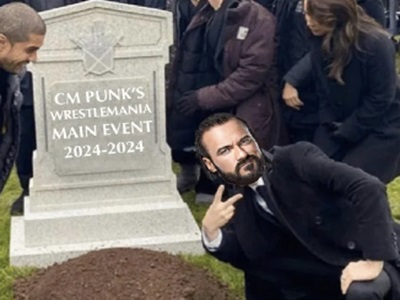WWE Talent Should All Be 1099 Contractors
For as long as WWE has existed, they have claimed that their “on air” talent are independent contractors (1099) as opposed to full-time employees (W-2). Over the past few years, the WWE’s tax classification for their performers has come under heavy scrutiny from not only former talent, but also in the public eye with notable late night talk show host John Oliver along with New York City mayoral candidate, Andrew Yang. For years, Vince McMahon and his long time General Counsel, Jerry McDevitt have fought this issue in the court room, and have yet to come out on the losing side. Keep in mind, employment law varies state by state. With the WWE being headquartered in Connecticut, employment law tends to be more advantageous to the employer than the employee whereas a state such as California is the opposite. Unless the state of Connecticut decides to adopt a new outlook on employment law, you will see that the state will continue to rule in WWE’s favor. Gig-economy workers such as WWE talent from a legal standpoint will always remain independent contractors.
While from an emotional standpoint it may seem unfair to the talent to be classified as independent contractors, they certainly know what they are getting into when they agree to be a performer for WWE. I highly doubt that the WWE prohibits their potential talent from having their contract reviewed by another attorney. The talent has every right to go through their agreement with a “fine tooth comb.” Typically, you do not hear new and or active talent complaining about the agreements they sign regarding their tax classification. Usually, it is after the fact when a talent leaves the company that they air their grievances towards the company. When this happens, more often than not the talent comes across as having “sour grapes.” Don’t believe me? I have one word for you. Ryback.
Enough of the legal talk and jargon. It is certainly not my forte, but I think I explained it well enough for even a common wrestling fan to understand. What the most annoying part of all of this is that “smart fans” and “Internet Wrestling Community” feel the need to constantly insert their two cents on this issue. You guys need to remember you are a fan first and foremost. Your job is to simply tune in on Monday and Friday nights and do your best to escape your reality and enjoy the product that is being put in front of you. Your opinion on the tax classification of the person you see jump from a top rope and into the announcers table has zero impact on you and how you consume the product. For years, IWC fans look for anything to groan and complain about. If you want to complain about the on-air product, be my guest. If you want to complain about the show being too long, or the WWE network not giving you enough content, go for it. With that said, do not look for reasons to bash WWE when it really does not affect you in any capacity. If you do not have even the slightest background knowledge on the subject, it is best to just keep your mouth shut about it and let the attorneys handle it. The WWE’s tax classification has long been fought in the legal system and every time they come out the victor. You posting snarky and snide remarks on Twitter about something you have little to no knowledge on will in no way change the outcome of any court case.
Most of the talent you see on RAW and Smackdown are individuals that have had a lifelong dream of performing for WWE. When they have their contract in hand, they are typically not thinking about their tax classification. They are living their dream performing for every one of you. They have agreed to the terms of the contract put in front of them. If they can agree to that, we as fans should accept the fact that they have no right to complain about anything they sign their name and agree to. We seemingly forget how well compensated these performers are in the process. Odds are, they are earning more income than the majority of wrestling fans. Is there that much to feel bad about? If you are interested in seeing a significant downfall in professional wrestling, then yes, you should endorse that the WWE unionize. But I can guarantee you that the product will never be the same and will be less likely to exist years down the road.
If the legal system in the state of Connecticut deems the WWE’s independent contractor classification is valid, we should accept that as fact and simply move on. Besides, I’m sure you all can find something else to complain about than how your favorite NXT talent that eventually fails on the main roster files his or her tax return.








